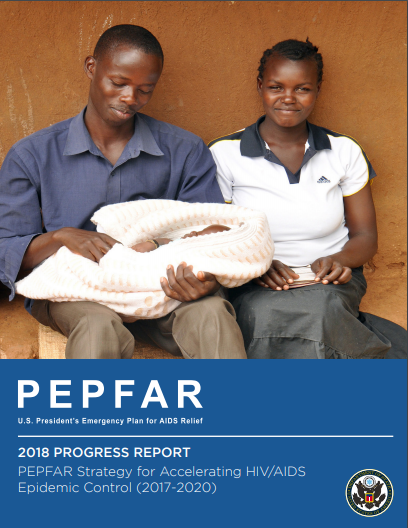Most donor governments decreased support
GENEVA/MENLO PARK, UNITED STATES, 18 July 2018—Donor government disbursements to combat HIV in low- and middle-income countries increased by 16%, from US$ 7 billion in 2016 to US$ 8.1 billion in 2017, although the higher total stems largely from the timing of funding from the United States of America and is not expected to last, a new report from the Kaiser Family Foundation and UNAIDS finds.
The increase follows two years of declines in donor support for HIV and results largely from a boost by the United States, the world’s largest donor nation, which increased its disbursement from US$ 4.9 billion in 2016 to US$ 5.9 billion 2017, including funds appropriated but not spent from previous years. New United States appropriations have been flat for several years, suggesting that future disbursements will likely fall back to prior levels.
While eight of 14 donor governments reduced their spending on global HIV efforts in 2017, increases by the United States and five other donors more than offset these declines. Bilateral aid went up, due to the United States increase. Multilateral contributions to the Global Fund to Fight AIDS, Tuberculosis and Malaria (Global Fund) also increased.
Donor government funding supports HIV care and treatment, prevention and other services in low- and middle-income countries. The report notes that without new commitments by other donor governments, however, future funding for HIV is likely to return to lower levels.
“UNAIDS is deeply concerned that a lack of sufficient resources will mean more deaths and more new HIV infections that can be prevented,” said Michel Sidibé, UNAIDS Executive Director. “Even a 20% cut in international funding would be catastrophic for the 44 countries that rely on international assistance for at least 75% of their national HIV responses.”
“This year’s increase is more an anomaly than a trend, as it doesn’t reflect new resources,” said Kaiser Family Foundation Vice President Jen Kates, Director of Global Health and HIV Policy. “Going forward, the urgency to identify alternative funding sources grows if the global community wants to reach its HIV targets.”
After the United States, the governments making the largest contributions to global HIV efforts include the United Kingdom of Great Britain and Northern Ireland (US$ 743.9 million), France (US$ 267.7 million), the Netherlands (US$ 202.6 million) and Germany (US$ 161.9 million).
The new report, produced as a long-standing partnership between the Kaiser Family Foundation and UNAIDS, provides the latest data available on donor government funding based on data provided by governments. It includes their bilateral assistance to low- and middle-income countries and contributions to the Global Fund as well as UNITAID. Donor government funding refers to disbursements, or payments, made by donors. Donor contributions to multilateral organizations are counted as part of their disbursements.
UNAIDS
The Joint United Nations Programme on HIV/AIDS (UNAIDS) leads and inspires the world to achieve its shared vision of zero new HIV infections, zero discrimination and zero AIDS-related deaths. UNAIDS unites the efforts of 11 UN organizations—UNHCR, UNICEF, WFP, UNDP, UNFPA, UNODC, UN Women, ILO, UNESCO, WHO and the World Bank—and works closely with global and national partners towards ending the AIDS epidemic by 2030 as part of the Sustainable Development Goals. Learn more at unaids.org and connect with us on Facebook, Twitter, Instagram and YouTube.
The Kaiser Family Foundation
Filling the need for trusted information on national health issues, the Kaiser Family Foundation is a nonprofit organization based in Menlo Park, California.



